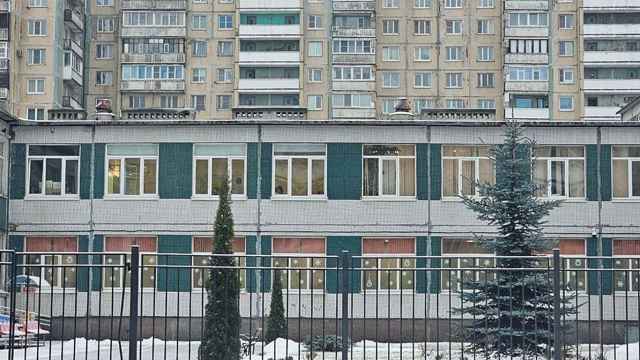SHANGHAI — Officials from the world's largest emerging nations on Tuesday launched the New Development Bank, a project lobbied by Moscow and others as an alternative to existing institutions such as the World Bank.
Also known as the BRICS bank, it follows soon after the establishment of the China-led Asian Investment Infrastructure Bank (AIIB), another international lender that will operate without U.S. participation. The new bank will fund infrastructure and development projects in the BRICS countries — Brazil, Russia, India, China and South Africa.
The ceremony on Tuesday concludes a lengthy wait since the New Development Bank was first proposed in 2012. Disagreements over the bank's funding, management and headquarters had slowed its launch.
Russia has lobbied hard to get the bank off the ground since early 2014, when its annexation of Crimea from Ukraine ruptured relations with the West and spurred efforts to promote deeper cooperation within the BRICS.
New Development Bank President Kundapur Vaman Kamath said: "Our objective is not to challenge the existing system as it is but to improve and complement the system in our own way."
He added that after a meeting with the AIIB in Beijing, the New Development Bank had decided to set up a "hotline" with the AIIB to discuss issues, and to forge closer ties between "new institutions coming together with a completely different approach."
The bank is considering raising funds by issuing a "substantial" amount of bonds in member markets to help mitigate costs arising from exchange rate fluctuations, he said.
Chinese Finance Minister Lou Jiwei said the New Development Bank's support of infrastructure projects will help "ease long-running bottlenecks faced by emerging and developing countries, and help them speed up, adjust and upgrade economic development."
The ceremony, held in Shanghai, where the New Development Bank's headquarters are located, was relatively low-key in comparison to a June signing of the articles of agreement for the AIIB in Beijing, which was attended by delegates from 57 countries and President Xi Jinping.
"From our standpoint we are really looking forward to cooperating with the new institutions … the needs [for infrastructure] are huge," said Karin Finkelston, a vice president at the World Bank, adding that the World Bank had been helping the AIIB and New Development Bank on issues such as human resources.
The Japan-led Asian Development Bank, in a statement quoting its president Takehiko Nakao, said it hoped to explore opportunities to co-finance projects with the New Development Bank.
The New Development Bank will have an initial capital of $50 billion to be equally funded by the five members who will have equal voting rights. The capital will be expanded to $100 billion within the next couple of years.
The members will also establish a reserve currency pool worth over another $100 billion. China has pledged to contribute $41 billion, Brazil, India and Russia will each contribute $18 billion, while South Africa will contribute $5 billion.
Kamath, a former executive with India's largest private bank ICICI Bank, told Reuters earlier this month that the New Development Bank plans to issue its first loans in April next year.
Material from The Moscow Times was included in this report.
A Message from The Moscow Times:
Dear readers,
We are facing unprecedented challenges. Russia's Prosecutor General's Office has designated The Moscow Times as an "undesirable" organization, criminalizing our work and putting our staff at risk of prosecution. This follows our earlier unjust labeling as a "foreign agent."
These actions are direct attempts to silence independent journalism in Russia. The authorities claim our work "discredits the decisions of the Russian leadership." We see things differently: we strive to provide accurate, unbiased reporting on Russia.
We, the journalists of The Moscow Times, refuse to be silenced. But to continue our work, we need your help.
Your support, no matter how small, makes a world of difference. If you can, please support us monthly starting from just $2. It's quick to set up, and every contribution makes a significant impact.
By supporting The Moscow Times, you're defending open, independent journalism in the face of repression. Thank you for standing with us.
Remind me later.





